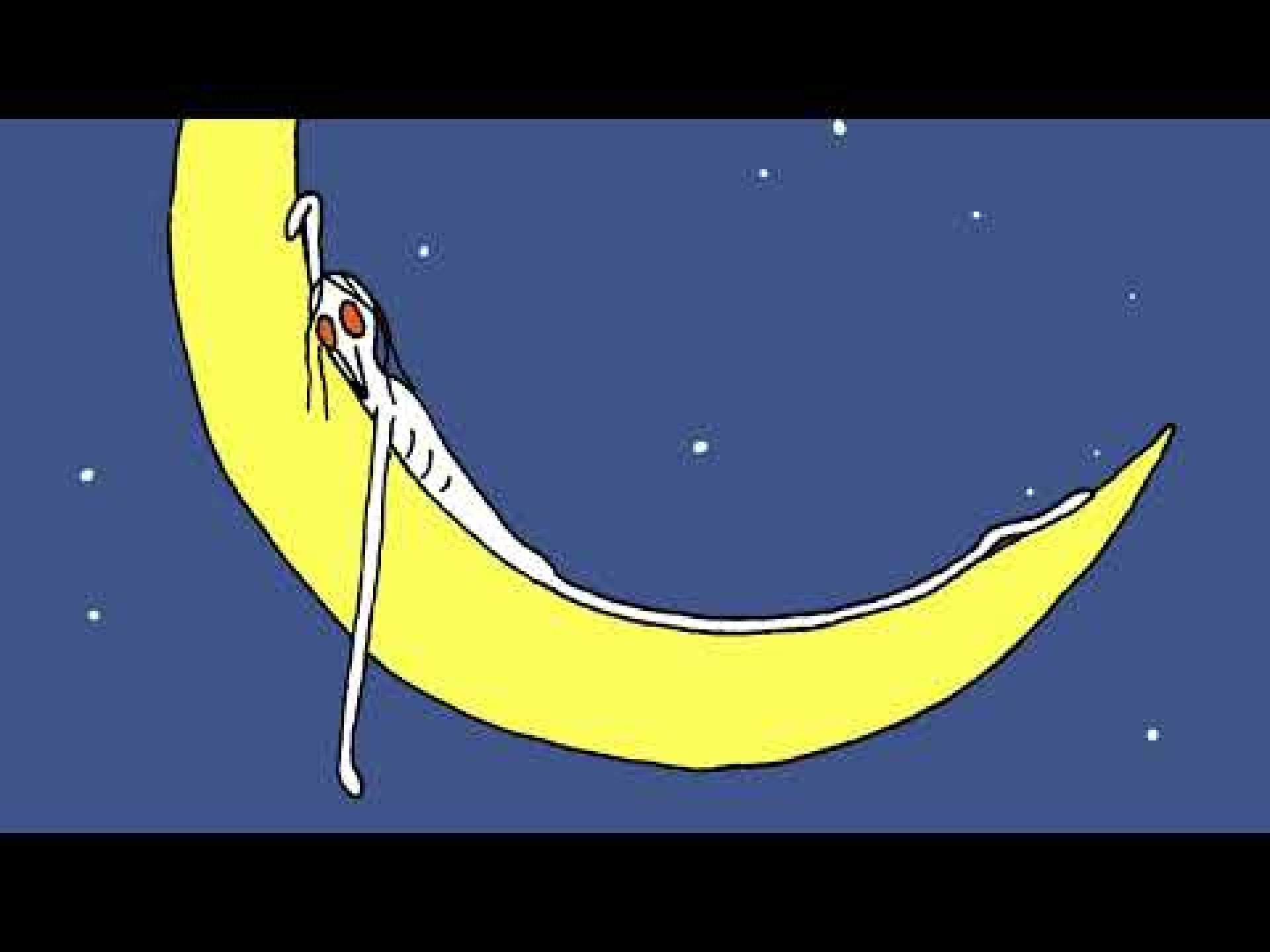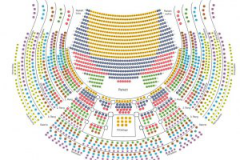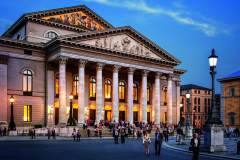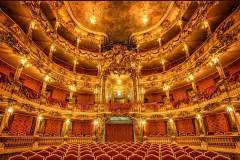Lucrezia, The Moon
Mo | Tu | We | Th | Fr | Sa | Su |
Together with the conductor Ustina Dubitsky and the singers of the Opera Studio, the Ukrainian director Tamara Trunova sets out in the context of the new production of the Opera Studio of the Bayerische Staatsoper to search for the synergies, parallels and differences of two brilliant short operas that take us to the core of human coexistence and social (dis)order. Carl Orff's Der Mond and Ottorino Respighi's Lucrezia initially seem quite different on a textual and musical level. Der Mond is based on a fairy tale by the Brothers Grimm, while the plot of Respighi's opera is based on a Roman tradition and several literary adaptations of this material. Nevertheless, there are certainly thematic and dramaturgical similarities in the two pieces, which were written almost simultaneously in the 1930s. In both works, characters not involved in the plot present us with the events: In Der Mond it is a narrator, in Lucrezia La Voce, a voice from the orchestra pit, who tell of a world in turmoil and the attempt to restore order and reorder conditions, respectively. In Orff's "little world theater" the moon is stolen and ends up in the underworld. It is only through Peter's intervention that it returns to the heavens, and from here it can once again shine for all. In Respighi's one-act opera, we find ourselves in ancient Rome in a time of decadence and tyranny by the Etruscan family of the Tarquinians. Lucretia, the wife of the general Collatinus, famous for her beauty and virtue, is raped by the tyrant's son Sextus Tarquinius and subsequently commits suicide. Brutus, a friend of her husband, avenges her, frees Rome from tyranny, and Rome becomes a republic. The way for a better future seems free ...
Program and cast
In Italian and German. With German supertitles. New Production.
Conductor: Ustina Dubitsky
Production: Tamara Trunova
Set Design: Linda Sollacher
Costume Design: Eva-Mareike Uhlig
Lighting: Benedikt Zehm
Choruses: Franz Obermair
Dramaturgy: Laura Schmidt
Lucrezia
La voce: Natalie Lewis
Lucrezia: Louise Foor
Servia: Xenia Puskarz Thomas
Venilia: Eirin Rognerud
Collatino: Liam Bonthrone
Bruto: Zachary Rioux
Tarquino: Thomas Mole
Tito: Vitor Bispo
Arunte: Paweł Horodyski
Spurio Lucrezio: Paweł Horodyski
Valerio: Vitor Bispo
The Moon
The Narrator: Liam Bonthrone
Four guys who steal the moon: Gabriel Rollinson, Vitor Bispo, Haozhou Hu, Paweł Horodyski
A farmer: Thomas Mole
An old man named Peter: Daniel Noyola
Bavarian State Orchestra
Extra choir of the Bavarian State Opera
National Theatre Munich
The National Theatre Munich (German: Nationaltheater München) is an opera house in Max-Joseph-Platz in Munich, Germany. It is the home of the Bavarian State Opera and the Bayerisches Staatsballett(Bavarian State Ballet).
The Bavarian State Opera also performs in the Prinzregententheater, which opened in 1901 and, like the Bayreuth Festspielhaus, is built to Richard Wagner's specifications, and in the Cuvilliés Theatre at the Residenz, constructed in 1751–1753 and described by Thierry Beauvert as "a Rococo gem".
The Nationaltheater is very easy to get to both by car and by MVV public transportation.
By MVV public transportation
S-Bahn: S 1 - 8 Marienplatz
U-Bahn: U 3, 6 Marienplatz, U 3 - 6 Odeonsplatz
Bus: 52, 131 Marienplatz, 100 Odeonsplatz
Straßenbahn: 19 Nationaltheater
On the day of the performance, holders of regular tickets are entitled to use public transport provided by the Münchner Verkehrsverbund (MVV). This service starts at 3 pm respectively three hours before the performance commences and ends with the closing hour of the MVV.
By Car
Take the Altstadt-Ring to Maximilianstraße.
Parking garage Max-Joseph-Platz: open Monday to Sunday from 6:00 A.M. to 2:00 A.M.
You can take advantage of the special theatre parking fee of Euro 10,- from 6:00 P.M. to 8:00 A.M. by presenting your admission tickets.

 EN
EN DE
DE IT
IT FR
FR ES
ES RU
RU JP
JP RO
RO
 Seating plan
Seating plan 
